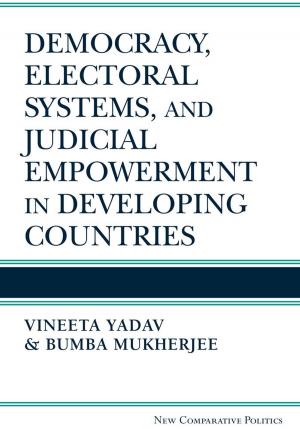The Congressional Black Caucus, Minority Voting Rights, and the U.S. Supreme Court
Nonfiction, Social & Cultural Studies, Social Science, Cultural Studies, African-American Studies, Political Science, Government| Author: | Christina Rivers | ISBN: | 9780472028214 |
| Publisher: | University of Michigan Press | Publication: | July 17, 2012 |
| Imprint: | University of Michigan Press | Language: | English |
| Author: | Christina Rivers |
| ISBN: | 9780472028214 |
| Publisher: | University of Michigan Press |
| Publication: | July 17, 2012 |
| Imprint: | University of Michigan Press |
| Language: | English |
Both the U.S. Supreme Court and the Congressional Black Caucus (CBC) claim to advocate minority political interests, yet they disagree over the intent and scope of the Voting Rights Act (VRA), as well as the interpretation of the equal protection clause of the 14th Amendment. Whereas the Court promotes color-blind policies, the CBC advocates race-based remedies. Setting this debate in the context of the history of black political thought, Rivers examines a series of high-profile districting cases, from Rodgers v. Lodge (1982) through NAMUDNO v. Holder (2009). She evaluates the competing approaches to racial equality and concludes, surprisingly, that an originalist, race-conscious interpretation of the 14th Amendment, along with a revised states' rights position regarding electoral districting, may better serve minority political interests.
Both the U.S. Supreme Court and the Congressional Black Caucus (CBC) claim to advocate minority political interests, yet they disagree over the intent and scope of the Voting Rights Act (VRA), as well as the interpretation of the equal protection clause of the 14th Amendment. Whereas the Court promotes color-blind policies, the CBC advocates race-based remedies. Setting this debate in the context of the history of black political thought, Rivers examines a series of high-profile districting cases, from Rodgers v. Lodge (1982) through NAMUDNO v. Holder (2009). She evaluates the competing approaches to racial equality and concludes, surprisingly, that an originalist, race-conscious interpretation of the 14th Amendment, along with a revised states' rights position regarding electoral districting, may better serve minority political interests.















